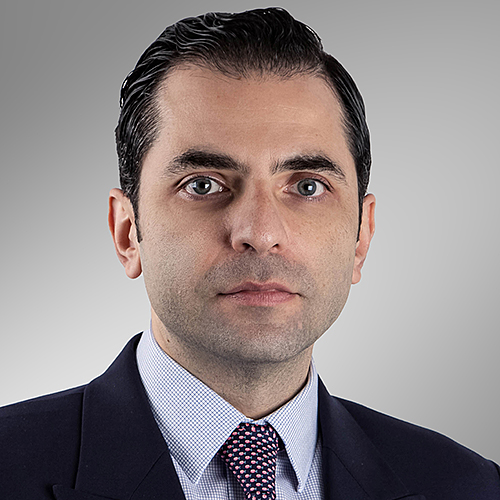Growing interest by European foreign fund managers in the Asia-Pacific region, combined with an eagerness by the region's fund managers to distribute funds in Europe, has resulted in asset managers changing their requirements, thereby putting pressure on transfer agents in the region to enhance their capabilities and services.
In this environment, two operating models are evolving: European fund managers taking their UCITS funds and distributing them across Asia; and Asian fund managers likewise using UCITS funds to distribute their products in Europe as well as in other Asian markets.
Because of the changing dynamics in the global asset management industry, asset managers are keen on having the ability to beef up their distribution capabilities in key Asia-Pacific markets and are expecting their respective transfer agents to step up to the plate.
In response, Bank of New York Mellon (BNY Mellon), whose transfer agency operations used to be separated along geographic regions, made a decision in 2010 to carry North America, Europe and the Asia-Pacific onto one major platform that operates across Europe and Asia.
"From a technology standpoint, we now have one major platform that operates across Europe and Asia. In terms of relationships, operations and market regulations, we have started to ensure that those global financial institutions are given the same type of coverage from those market places," explains Jonathan Willis, BNY Mellon's head of transfer agency (TA) for Europe, the Middle East and Africa (EMEA) and the Asia-Pacific.
In August 2012, BNY Mellon and Bravura Solutions signed a ten-year technology and managed services agreement with a view to continuing the consolidation of BNY Mellon's transfer agency technology onto Bravura's platform across its European securities servicing business. Under the agreement, BNY Mellon is deploying Babel, Bravura's STP messaging platform, and taWeb real-time portal which will provide online access to consolidated investor transactional data across multiple back-office systems. The agreement is a contract extension of Bravura's global, cross-border solution already used by BNY Mellon.
In terms of market coverage, BNY Mellon covers UK, Ireland, and Luxembourg, the principal centres in Europe for originating UCITS funds.
Europe-Asia connection
In recent years, the value of UCITS funds has been highlighted by the fact that even non-European regulators, particularly those in Asia, consider UCITS as an acceptable model for compliance, even for their domestic funds. This means that global transfer agents, sooner or later, would need to have the capability to do transfer agency services for UCITS or UCITS-compliant funds even at the domestic level in the Asia-Pacific and other emerging markets.
"We do distribution throughout Europe from these centres and we also cover some German domestic funds. More recently, we have been picking up Spanish, French and Dutch funds as well. We cover other countries as well, through other non-TA services which we can leverage, so our global financial institutional clients will have a larger presence in some of the more local markets. On the Asian side, we handle Singapore funds, Hong Kong funds, and some Cayman-based Japanese funds," Willis says.
In terms of client coverage, apart from the global financial institutions, BNY Mellon serves insurance companies, large global asset managers and regional clients.
"The interesting thing is that there is strong demand for investments in the Asia-Pacific region, not only from the global financial institutions but even from those institutions that used to be Eurocentric or even UK-centric. One of our clients had been a UK-only house for almost its entire existence, yet last year it launched Luxembourg funds not so much to penetrate the European market (where clearly they will be available) but because that UCITS badge is currently viewed as a market requirement for Asia," Willis notes.
On the flipside, UCITS funds are also used by Asians to invest in Europe. "The net inflows into European funds from Asian investors are probably 3× that of new net inflows from European investors. There is money in Europe, there is corporate money, there is pension money moving around, but there isn't that much new money, there isn't much new wealth generation. Hence, European investors are going to the emerging economies to seek new wealth generation," Willis observes.
Fragmented markets
European fund managers have gained clarity about the importance of Asia as an investment destination. Other emerging regions, such as Latin America, are equally generating much interest among European investors.
In addition, both European and Asian investors are making preparations to ensure that they are properly positioned to take advantage of opportunities in China when that market liberalizes. "I think the scale and size of China excite everyone who can understand it. Everyone is waiting in the starting blocks for the race to begin. They don't want to miss an opportunity. Our clients are expecting us to help make sure that they are positioned in the right place. This means that we too have to be properly positioned in the right place as and when the Chinese market opens up," Willis says.
One of the principal challenges for distribution in Asia is that transfer agents need to have multiple language and multiple currency capabilities. "In Europe, you can predominantly do transfer agency and administration in English. In Asia, there are a myriad of languages and currencies that you have to cope with. No single currency is dominant. What has evolved is the large global financial institutions locally in Taiwan or South Korea, Singapore, Hong Kong with their own transfer agency capabilities in their back offices," Willis says.
But as they build their business and generate more volume, many of these global financial institutions and asset managers have expressed a preference for outsourcing the transfer agency functions, primarily to save costs and focus on their core competency - which is fund management.
"Our global clients are going to further expand their domestic fund range, but are reluctant to grow their internal transfer agency, So they are increasingly demanding that transfer agents step up to the plate and come and help them," Willis says.





.jpg)
.jpg)


